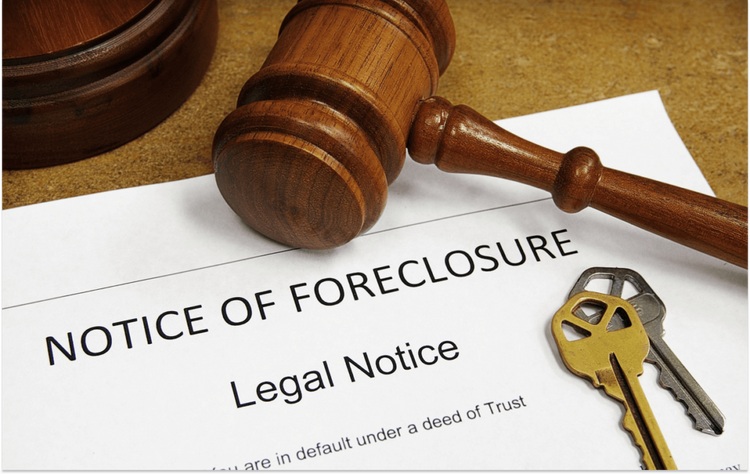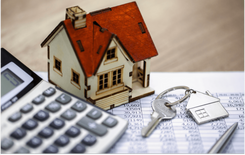Covid Relief: How to Prevent Foreclosure During the Pandemic


by Tyler Forte
With the number of cases of the coronavirus skyrocketing in the U.S., we all have been affected by this pandemic. You may not have gotten sick. You may not even know anyone who has the virus. But you have felt the economy grind to a screeching halt.
Just about every industry has been impacted and mass layoffs have already taken place. In fact, U.S. unemployment spiked 1,100% to 3.2 million on March 24th, and that number doubled again to 6.6 million on April 2nd. It is sure to continue to rise over the next couple of months.
With so much economic uncertainty, you may be wondering if your job is safe. If you do lose your job, will you be able to pay your mortgage? Will you lose your home?
You need to know your rights as a homeowner and what options you have. This guide can help you keep your home.
What Exactly Is A Foreclosure?
A foreclosure is a formal ending of the mortgage contract where a homeowner is unable to make their mortgage payments. In foreclosure, the lender legally seizes the property, evicts the homeowner, and sells the home.
Can My Home Be Foreclosed On During The COVID-19 Pandemic?
Many homeowners have at least 60 days of mortgage relief due to the coronavirus.
On March 18th, an eviction and foreclosure moratorium went into effect for single-family loans backed by the FHA, Fannie Mae or Freddie Mac, and the USDA. During this time, homeowners will not be charged any late fees nor will they be evicted from their homes. In addition, lenders will not initiate foreclosure proceedings and any proceedings already in process will be suspended.
On March 18th, an eviction and foreclosure moratorium went into effect for single-family loans backed by the FHA, Fannie Mae or Freddie Mac, and the USDA. During this time, homeowners will not be charged any late fees nor will they be evicted from their homes. In addition, lenders will not initiate foreclosure proceedings and any proceedings already in process will be suspended.
Ally Bank: Evictions and foreclosure proceedings are suspended until July 30.
Associated Bank: Foreclosure actions on residential properties are suspended for 60 days unless required by federal or government agencies.
Bank of America: Evictions and foreclosures are suspended for at least 90 days.
Citizens Bank: Home foreclosures have been automatically suspended for up to 60 days.
Fifth Third Bank: All foreclosure activity is suspended for the next 60 days.
First National Bank: New foreclosures are suspended for customers directly impacted by COVID-19.
First National Bank of Omaha: Foreclosure-related activities have been temporarily paused.
Flagstar Bank: All foreclosure, eviction, and repossession activity is suspended through the end of May 2020.
Huntington National Bank: Foreclosure-related activity specific to residential properties are suspended through the end of May 2020.
KeyBank: Residential property foreclosures have been paused unless required by a federal or government agency.
Regions Bank: New efforts to start property foreclosures on consumer real estate loans are suspended for 30 days.
Santander Bank: Foreclosures on mortgages and home equity lines of credit are suspended.
TCF Bank: All new residential property foreclosure actions have been suspended through the end of April 2020.
Webster Bank: Foreclosure on residential loans has been put on a 90-day moratorium.
Wells Fargo: Residential property foreclosures sales and evictions have been suspended.
How Can I Avoid Foreclosure?
If you believe you are at risk of not being able to pay your monthly mortgage payments, the first thing you should do is contact your lender and tell them about your financial difficulties. By notifying your lender about your personal situation, they can work with you to create a plan. In some cases, they are obligated to work with you if you indicate a financial need.
You should not stop paying your bills, and do not wait until you cannot afford to make payments before you contact them. You may feel scared or embarrassed, but if you immediately begin to work with your lender on a solution, you have a better chance of avoiding foreclosure. Remember, the person you call has these conversations every day. It is not embarrassing for them, and it should not be for you either. They WANT you to be okay and make your payments, and they want to help.
Who Can I Talk To In Order To Get Advice?
You can contact the government program MHA which stands for Making Home Affordable. This program grew out of the TARP relief fund passed to help America recover from the great recession in 2008-2009. Their website explains what options are available and they have a hotline that you can call 24/7 at 1-888-995-4673.
If you have an FHA loan, then you should call the FHA National Servicing Center at 877-622-8525. It is also a good idea to reach out to the Tennessee Housing Development Agency for state-specific policies.
If you or an immediate family member has a COVID-19 diagnosis from a physician, mention this early in the conversation. It may open up access to newly available funding passed in response to the pandemic.
About Felix Homes
Felix Homes is where five-star service meets low commissions! To date, we've saved our clients $1,610,738 in commission fees and have earned 120 five-star reviews on Google!
How are we able to offer five-star service AND lower commission fees? It's simple:
- We're an independently owned brokerage – not a franchise which allows us to keep more of the commission we earn.
- By offering a lower commission, more folks want to work with us which means we close more deals. By closing more deals, we can pass more savings along to our customers!
Still not convinced? Read all about our low-commission mission here.
If you have any questions about the state of the market or the home buying/selling process, please feel free to contact us at contact@felixhomes.com or 615-354-5731.




